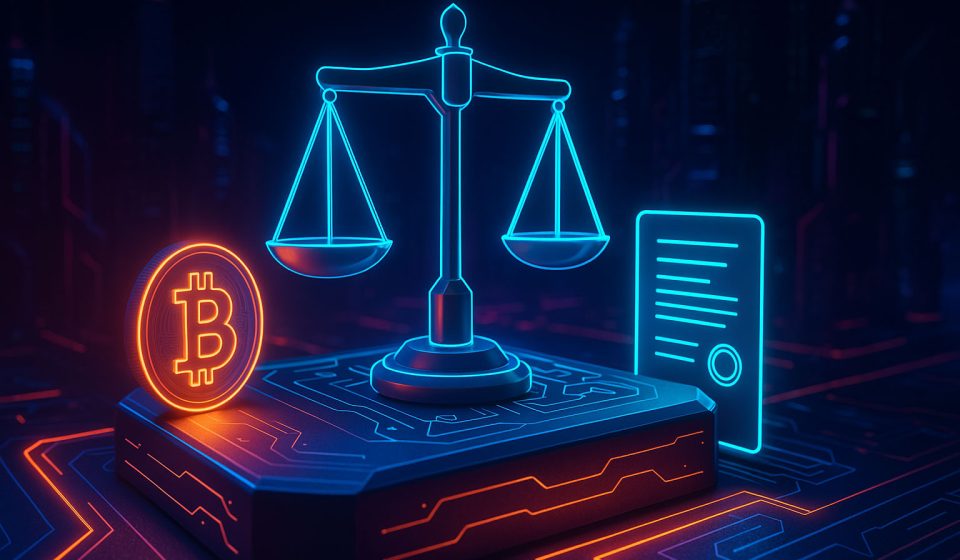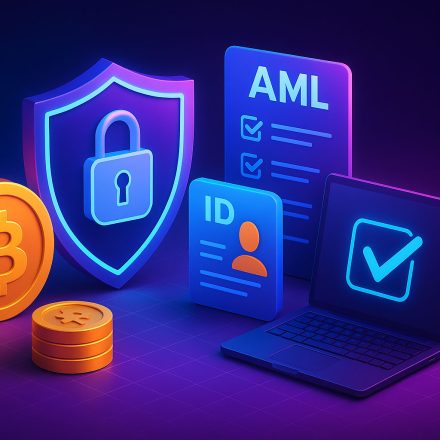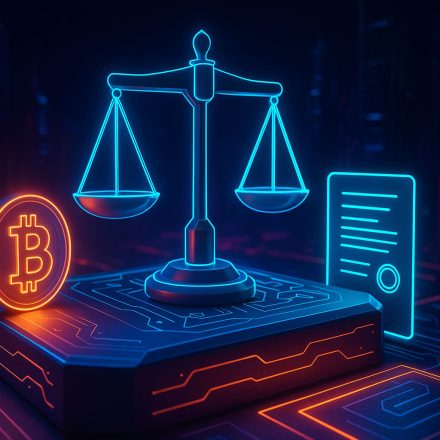
⚖️ Crypto Regulation: What You Need to Know
As cryptocurrencies grow in popularity, so does the global conversation around crypto regulation. From tax policies to anti-money laundering laws and investor protections, regulation is rapidly shaping the future of blockchain and Web3.
Table Of Content
- 💡 What Is Crypto Regulation?
- 🌎 Why Crypto Regulation Matters
- ✅ Investor Protection
- ✅ Market Stability
- ✅ Preventing Crime
- ✅ Innovation Balance
- 📜 How Different Countries Handle Crypto Regulation
- 🇺🇸 United States
- 🇪🇺 European Union
- 🇬🇧 United Kingdom
- 🇸🇬 Singapore
- 🇯🇵 Japan
- 🇸🇻 El Salvador
- ⚠️ What Happens If There’s No Regulation?
- 🛠️ What Are Crypto Companies Required to Do?
- 🔗 Want to Learn More?
- 📝 Final Thoughts
In this beginner-friendly guide, we’ll walk you through what crypto regulation is, why it matters, and how it varies around the world.
At BlockchainInsights.org, we break down complex blockchain topics into clear, trustworthy content — regulation included.
💡 What Is Crypto Regulation?
Crypto regulation refers to the laws, rules, and frameworks that governments and regulatory bodies use to govern cryptocurrency-related activities. These can include:
- Trading and investment rules
- Taxation of crypto gains
- Know Your Customer (KYC) and Anti-Money Laundering (AML) requirements
- Licensing for exchanges and custodians
- Securities law compliance for token offerings
Because cryptocurrencies operate across borders, regulation varies widely by country — and is still evolving.
🌎 Why Crypto Regulation Matters
Crypto regulation is important for several reasons:
✅ Investor Protection
Regulation helps prevent fraud, scams, and rug pulls by requiring transparency from crypto projects and platforms.
✅ Market Stability
Clear rules provide structure to an often volatile and unpredictable industry, which helps attract institutional investors and mainstream adoption.
✅ Preventing Crime
KYC and AML regulations are designed to prevent illicit use of cryptocurrencies for money laundering, terrorism financing, or fraud.
✅ Innovation Balance
Well-designed regulation can protect users without stifling innovation in blockchain and decentralized finance (DeFi).
📜 How Different Countries Handle Crypto Regulation
Let’s take a look at how major jurisdictions approach crypto regulation:
🇺🇸 United States
- The SEC treats some tokens as securities, which brings them under strict regulation.
- The CFTC also claims oversight of crypto as commodities.
- Exchanges must register with FinCEN and enforce KYC/AML.
- IRS treats crypto as property and requires capital gains reporting.
🇪🇺 European Union
- Recently passed the MiCA (Markets in Crypto-Assets) regulation, which provides a unified legal framework for crypto across member states.
- Focuses on consumer protection, stablecoin regulation, and transparency.
🇬🇧 United Kingdom
- Regulates crypto asset promotions and advertising.
- FCA requires registration for crypto companies offering services in the UK.
🇸🇬 Singapore
- Embraces innovation while enforcing strict licensing through MAS.
- Promotes responsible growth of crypto companies.
🇯🇵 Japan
- One of the earliest countries to license and regulate crypto exchanges.
- Focuses on protecting investors and maintaining financial integrity.
🇸🇻 El Salvador
- The first country to adopt Bitcoin as legal tender in 2021.
- Promotes Bitcoin adoption nationally, though with mixed results.
Each region’s regulatory stance affects how crypto businesses operate — and where they choose to set up shop.
⚠️ What Happens If There’s No Regulation?
Without proper regulation, the crypto space can become a breeding ground for:
- Ponzi schemes and exit scams
- Insider trading and market manipulation
- Identity theft and security breaches
- Tax evasion and money laundering
Regulation brings legitimacy, even if it adds friction for users and builders.
🛠️ What Are Crypto Companies Required to Do?
Depending on the jurisdiction, crypto exchanges, custodians, wallet providers, and DeFi platforms may need to:
- Register with local financial regulators
- Perform customer identity verification (KYC)
- Report suspicious transactions
- Submit regular audits or compliance reports
- Limit certain services based on regional laws
Even decentralized platforms must consider regulatory risk — particularly if developers or interfaces are centralized in some way.
🔗 Want to Learn More?
Check out this related article:
“What Is KYC and AML in Crypto?” (coming soon)
Or revisit the basics:
“How Blockchain Works: A Simple Guide for Beginners”
https://blockchaininsights.org/how-blockchain-works
📝 Final Thoughts
Crypto regulation is no longer just a side topic — it’s shaping the future of the entire industry. While laws vary globally, the trend is clear: governments want clarity, accountability, and compliance.
As an investor, builder, or user, understanding crypto regulation helps you stay safe, informed, and aligned with the evolving legal landscape.
At BlockchainInsights.org, we’ll keep you updated on both the rules — and the freedom — of the blockchain world.












